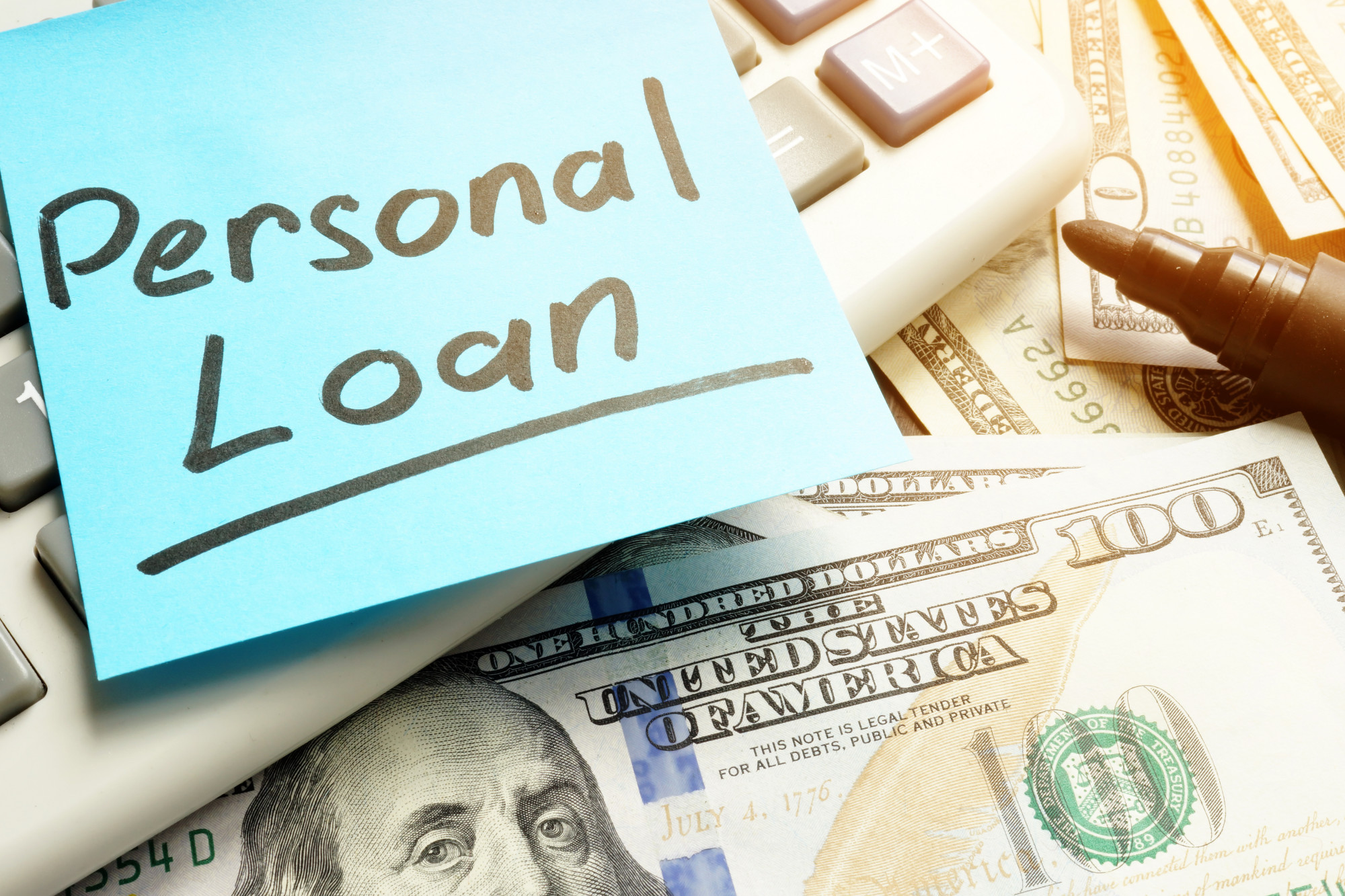
Consolidating debts involves getting a large loan to cover multiple debts. This could cause credit problems, particularly if you fail to meet the payments requirements. Talk to your lenders about negotiating a lower or longer payment term. You should thoroughly understand the process before you make any decisions.
Personal
Personal loans are a great option if you want to consolidate debt. Before you apply for a personal loans, there are a few things you should know. Your credit score is very important. It can be damaged by overdues and missed payments. But, if you keep your payments on schedule, your credit score should improve. Second, if you are looking to consolidate your debts, you should avoid running up new credit card balances. This will make it hard to make monthly repayments on your new loan and could cause your credit score to suffer.
Your credit score may have improved and you might be eligible for a lower interest on your new loan. This will save you money throughout the life of your loan. Make sure to shop around for the lowest interest rate, and focus on lenders who offer a prequalification process.
Home equity lines credit
Home equity loans are a way to borrow money against your equity. Equity is simply the difference between the home's value and the amount owed on your mortgage. Bank of America allows you to borrow upto 85% of the home's value.

The requirements for equity loans as well as lines of credit are strict. Lenders don't want to lose money by foreclosure so they look at income and credit scores to determine the likelihood of default. They also assess credit and other debts. Good credit is a better indicator of your ability to obtain a loan for home equity.
Debt settlement programs
Debt settlement programs consolidate debts by negotiating with your creditors to lower the total amount you owe. These programs can reduce your debt by thirty to eighty percent, and you won't have to make monthly payments to your creditors. Instead, your contributions will be deposited into a program savings bank, which will ultimately provide the funds to pay off your creditors.
Debt settlement isn't for everyone. This option is not available if your debt is so extensive that you are in financial hardship. But if you're able to make the payments on time and are willing to work with your creditors, debt settlement can be a good option. While debt settlement sounds appealing, you should be aware of the fact that there are significant risks. You can damage your credit rating by negotiating with creditors. Additionally, you run the risk of being sued and paying taxes for debts settled.
Refinancing
Consolidating your debt with refinance is a great method to reduce interest rates while simplifying monthly payments. This is done by tapping into the equity of your home. This converts unsecured to secured debt. Your home will not be at risk should you default. You must also be sure to adjust your spending habits to lower your monthly payments and interest rates. You must also have a reasonable debt-to-income ratio, which is calculated by taking your monthly debt payments and dividing them by your total monthly income.
You may be eligible for lower interest rates if you have a good credit rating. Reputable lenders can offer debt consolidation loans to help your finances. A lower interest rate may allow you to make a smaller monthly payment. This will give you more money for principal payments. You can also improve your credit score through debt consolidation by obtaining a better interest rate.

Balance transfer fees
Balance transfer fees when consolidating debt can be costly. These fees can vary depending on which card issuer you have, so make sure to compare them with other options. You will typically be charged between 3 and 5% for each amount transferred. Credit card issuers sometimes offer no-fee promotions. Make the transfer as soon you can after opening your account in order to get the best rates. Origination fees are the costs associated with processing your application. You can find great deals by shopping around for balance transfers without spending a lot.
Some introductory deals offer 0% APR, but only for a set number of months. After this period, regular rates apply. Even if your credit is great, it's important to be aware of the fees. You've probably used a credit card before and know how costly it can be. Other than the interest rate, the card owner is responsible for any fees. These fees include late payments, overlimit fees (check returns), balance transfer fees and check return fees.
FAQ
What side hustles will be the most profitable in 2022
To create value for another person is the best way to make today's money. If you do this well the money will follow.
While you might not know it, your contribution to the world has been there since day one. When you were little, you took your mommy's breastmilk and it gave you life. Your life will be better if you learn to walk.
You'll continue to make more if you give back to the people around you. In fact, the more you give, the more you'll receive.
Value creation is a powerful force that everyone uses every day without even knowing it. You are creating value whether you cook dinner, drive your kids to school, take out the trash, or just pay the bills.
There are actually nearly 7 billion people living on Earth today. Each person creates an incredible amount of value every day. Even if only one hour is spent creating value, you can create $7 million per year.
You could add $100 per week to someone's daily life if you found ten more. That would make you an additional $700,000 annually. Think about that - you would be earning far more than you currently do working full-time.
Let's imagine you wanted to make that number double. Let's suppose you find 20 ways to increase $200 each month in someone's life. You'd not only earn an additional $14.4 million annually but also be incredibly rich.
Every day, there are millions upon millions of opportunities to create wealth. This includes selling ideas, products, or information.
Although many of us spend our time thinking about careers and income streams, these tools are only tools that enable us to reach our goals. Ultimately, the real goal is to help others achieve theirs.
Create value to make it easier for yourself and others. You can start by using my free guide: How To Create Value And Get Paid For It.
What is personal finance?
Personal finance means managing your money to reach your goals at work and home. This includes understanding where your money is going and knowing how much you can afford. It also involves balancing what you want against what your needs are.
If you master these skills, you can be financially independent. This means you are no longer dependent on anyone to take care of you. You won't have to worry about paying rent, utilities or other bills each month.
Not only will it help you to get ahead, but also how to manage your money. It will make you happier. You will feel happier about your finances and be more satisfied with your life.
So, who cares about personal financial matters? Everyone does! Personal finance is a very popular topic today. Google Trends reports that the number of searches for "personal financial" has increased by 1,600% since 2004.
Today, people use their smartphones to track budgets, compare prices, and build wealth. These people read blogs like this one and watch YouTube videos about personal finance. They also listen to podcasts on investing.
Bankrate.com estimates that Americans spend on average 4 hours per day viewing TV, listening to music and playing video games, as well reading books and talking with friends. This leaves just two hours per day for all other important activities.
If you are able to master personal finance, you will be able make the most of it.
What side hustles can you make the most money?
Side hustle is an industry term that refers to any additional income streams that supplement your main source.
Side hustles are important as they can provide additional income for bills or fun activities.
Side hustles may also allow you to save more money for retirement and give you more flexibility in your work schedule. They can even help you increase your earning potential.
There are two types. Online businesses like e-commerce, blogging, and freelance work are all passive side hustles. Some examples of active side hustles include dog walking, tutoring and selling items on eBay.
Side hustles that are right for you fit in your daily life. Start a fitness company if you are passionate about working out. You may be interested in becoming a freelance landscaper if your passion is spending time outdoors.
Side hustles can be found everywhere. Look for opportunities where you already spend time -- whether it's volunteering or taking classes.
For example, if you have experience in graphic design, why not open your own graphic design studio? Perhaps you're an experienced writer so why not go ghostwriting?
Do your research before starting any side-business. You'll be ready to grab the opportunity when it presents itself.
Side hustles are not just about making money. Side hustles can be about creating wealth or freedom.
And with so many ways to earn money today, there's no excuse to start one!
How to make passive income?
To generate consistent earnings from one source, you have to understand why people buy what they buy.
This means that you must understand their wants and needs. You need to know how to connect and sell to people.
Then you have to figure out how to convert leads into sales. You must also master customer service to retain satisfied clients.
Even though it may seem counterintuitive, every product or service has its buyer. Knowing who your buyer is will allow you to design your entire company around them.
To become a millionaire it takes a lot. It takes even more work to become a billionaire. Why? It is because you have to first become a 1,000aire before you can become a millionaire.
And then you have to become a millionaire. You can also become a billionaire. The same is true for becoming billionaire.
How do you become a billionaire. It starts with being a millionaire. To achieve this, all you have to do is start earning money.
You have to get going before you can start earning money. Let's discuss how to get started.
What is the difference in passive income and active income?
Passive income is when you make money without having to do any work. Active income requires effort and hard work.
If you are able to create value for somebody else, then that's called active income. If you provide a service or product that someone is interested in, you can earn money. You could sell products online, write an ebook, create a website or advertise your business.
Passive income is great because it allows you to focus on more important things while still making money. But most people aren't interested in working for themselves. So they choose to invest time and energy into earning passive income.
The problem with passive income is that it doesn't last forever. If you wait too long to generate passive income, you might run out of money.
You also run the risk of burning out if you spend too much time trying to generate passive income. Start now. You will miss opportunities to maximize your earnings potential if you put off building passive income.
There are three types or passive income streams.
-
These include starting a business, owning a franchise or becoming a freelancer. You could also rent the property, such as real-estate, to other people.
-
Investments include stocks, bonds, mutual funds, ETFs, and ETFs.
-
Real estate - This includes buying and flipping homes, renting properties, and investing in commercial real property.
How much debt are you allowed to take on?
It's essential to keep in mind that there is such a thing as too much money. Spending more than you earn will eventually lead to cash shortages. Savings take time to grow. Spend less if you're running low on cash.
But how much can you afford? There is no universal number. However, the rule of thumb is that you should live within 10%. Even after years of saving, this will ensure you won't go broke.
This means that you shouldn't spend more money than $10,000 a year if your income is $10,000. If you make $20,000 per year, you shouldn't spend more then $2,000 each month. And if you make $50,000, you shouldn't spend more than $5,000 per month.
Paying off your debts quickly is the key. This includes credit card bills, student loans, car payments, etc. Once these are paid off, you'll still have some money left to save.
You should consider where you plan to put your excess income. If the stock market drops, your money could be lost if you put it towards bonds or stocks. But if you choose to put it into a savings account, you can expect interest to compound over time.
As an example, suppose you save $100 each week. Over five years, that would add up to $500. You'd have $1,000 saved by the end of six year. In eight years, you'd have nearly $3,000 in the bank. When you turn ten, you will have almost $13,000 in savings.
After fifteen years, your savings account will have $40,000 left. Now that's quite impressive. However, if you had invested that same amount in the stock market during the same period, you'd have earned interest on your money along the way. Instead of $40,000 in savings, you would have more than 57,000.
You need to be able to manage your finances well. If you don't do this, you may end up spending far more than you originally planned.
Statistics
- U.S. stocks could rally another 25% now that Fed no longer has ‘back against the wall' in inflation fight (marketwatch.com)
- According to a June 2022 NerdWallet survey conducted online by The Harris Poll. (nerdwallet.com)
- 4 in 5 Americans (80%) say they put off financial decisions, and 35% of those delaying those decisions say it's because they feel overwhelmed at the thought of them. (nerdwallet.com)
- While 39% of Americans say they feel anxious when making financial decisions, according to the survey, 30% feel confident and 17% excited, suggesting it is possible to feel good when navigating your finances. (nerdwallet.com)
- Shares of Six Flags Entertainment Corp. dove 4.7% in premarket trading Thursday, after the theme park operator reported third-quarter profit and r... (marketwatch.com)
External Links
How To
How to make money online
It is much easier to make money online than it was 10 years ago. The way you invest your money is also changing. There are many ways that you can make passive income. But, they all require a large initial investment. Some methods are easier than others. There are a few things to consider before you invest your hard-earned money into any online business.
-
Find out who you are as an investor. PTC sites, which allow you to earn money by clicking on ads, might appeal to you if you are looking for quick cash. On the other hand, if you're more interested in long-term earning potential, then you might prefer to look at affiliate marketing opportunities.
-
Do your research. Before you commit to any program, you must do your homework. You should read reviews, testimonials, as well as past performance records. You don't wish to waste your energy and time only to discover that the product doesn’t perform.
-
Start small. Don't just jump right into one big project. Instead, start off by building something simple first. This will enable you to get the basics down and make a decision about whether or not this type of business is for your. After you feel confident enough, you can start working on larger projects.
-
Get started now! You don't have to wait too long to start making money online. Even if you've been working full-time for years, you still have plenty of time left to build a solid portfolio of profitable niche websites. All you need to get started is an idea and some hard work. Get started today and get involved!